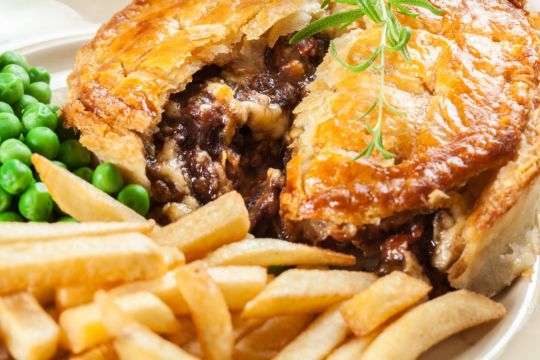When the weather is dark, cold and generally miserable, you hardly want a sad salad for dinner.
Instead, we crave hearty, filling, homey food: pies, stews, mashed potato and stodgy puddings. There’s a reason these kinds of dishes are called comfort food – they provide a little solace when everything is a bit grim outside.
And after such a stressful year, we might be reaching for comforting foods more than normal. Research from Rennie found nearly half of people rook comfort from food during lockdown, and one in five believed their favourite dishes could help them through unsettling times.
Here’s why we crave comfort food in winter – especially after the events of 2020…
Food can temporarily boost your mood
Comfort food is always a mood lifter.
The kind of emotional hug I need when am not in a good mood..— Mrs. Funky Freak (@angrybird27) November 25, 2020
“There is a clear link between mood and food choices, and these seem to be mediated by long and short term benefits,” explains psychologist Dr Maryhan Baker. “When we are in a positive mood, we tend to focus on long term benefits; we typically want to be healthier, so we make healthy food choices. Low or negative mood tends to create a short term benefit approach, so we want fast easy fixes to our low mood. We tend to be drawn to the more unhealthy, sugar-rich, carbohydrate dense foods, which are typically associated with comfort food.”
Baker says comfort food activates the dopamine reward pathway in the brain, stimulating feelings of reward and pleasure. “At times when we feel low, these comfort foods boost our mood, even if it is only temporary,” she says. “The connection is so powerful that we can even feel an increase in happiness, simply in anticipation of the food yet to come.”
Food can remind you of loved ones
Maybe apple pie brings your grandfather to mind, or mac and cheese reminds you of your mum. “We are constantly forming associations, and these tend to be super strong when it comes to food and the connections they have with our family,” says Baker. “When we feel lonely, and missing the connection our families bring, we [often] crave comfort foods. These provide a sense of comfort and security, which we are lacking. The more positive our connection is with our family [and the foods associated with them], the more likely we will reach for comfort foods at times of loneliness.”
It can fill you with nostalgia
Smell is particularly evocative, and the scent of a roast dinner or blackberry crumble has the power to transport us back to childhood.
For many people, “these are happy and joyful times we often want to return to at difficult, stressful times, or when the days seem long and cold,” explains Baker. “Our drive to eat comfort foods can stem from a desire to return to these happy halcyon days of our childhood.”
You want the calories in winter
Comfort foods tend to be rich, stodgy and delicious – and there’s an evolutionary explanation for craving these extra calories. “In a time when humans hunted for food, rather than shopped at a supermarket, there would have been a huge advantage to carrying extra weight over the colder, darker, winter months,” says Baker. “This extra body weight meant you were more insulated from the cold, and therefore more likely to survive harsh winters.”







